Depending on where you got inked, sleeping with a new tattoo may not exactly be a comfortable experience. So, how exactly does sleeping work when you’ve got fresh art on your skin? Is there a ‘correct’ way of sleeping? Scroll down to find out!
Page Contents
Can (or should) you sleep on a new tattoo?
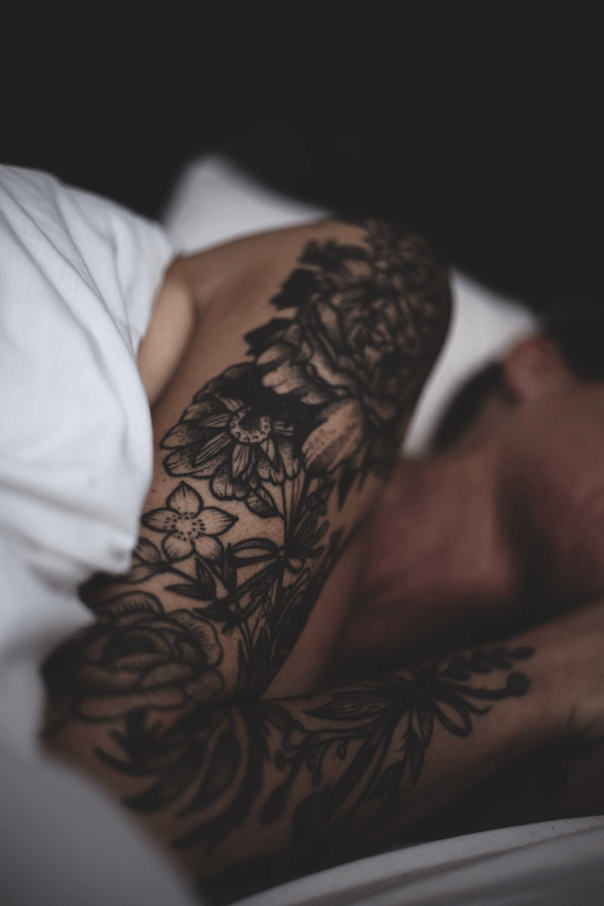
Image source: Paul Johnston
The first few nights after getting a tattoo won’t be fun. Your movements will be limited due to the fear of accidentally sleeping on the tattoo and putting weight on it.
Sleeping on your tattoo is NOT a good idea, here’s why:
- It’s an open wound
All tattoos are technically open wounds. Tiny needle tips puncture your skin thousands of times to deliver tattoo ink pigment to the second skin layer, the dermis. During the first night or two, the holes in your skin will be open. And it will be oozing blood, plasma, and excess ink.
If you sleep on your tattoo, it will apply pressure to the area which can cause some of the ink to escape. You’re literally squeezing the ink from your skin. I’m sure you don’t want that to happen.
- It prevents your tattoo from breathing
Your tattoo needs oxygen to heal. It’s an important part of the tattoo healing process. If you sleep on your tattoo, it will likely cause the area to get warm and sweaty (especially if it’s hot in your room). This can trap germs and bacteria on skin, which can cause some damage to your tattoo in the form of an infection.
- It can damage your tattoo
As you’ve learned above, sleeping on your new tattoo can squeeze the ink out, which can lead to patches or blank spots in your tattoo’s design. Also, if you contract an infection, depending on the severity, the tattoo may end up being fully damaged and may require removal.
So, when can you sleep on a new tattoo?
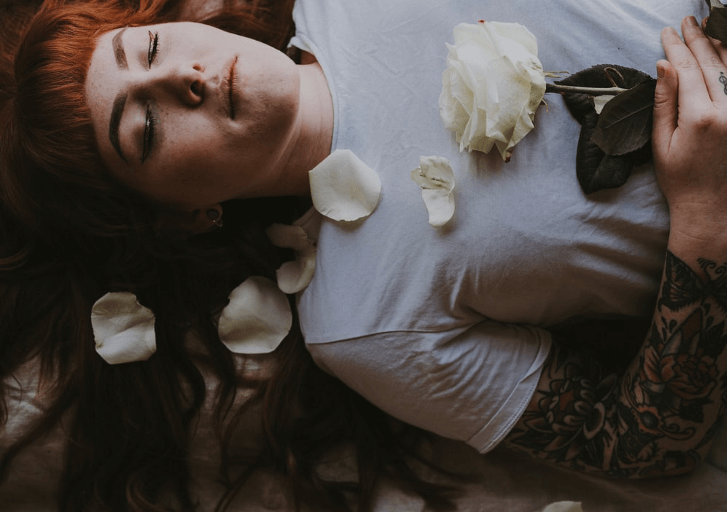
Image source: Annie Spratt
Some ‘experts’ say you can sleep on it after 3 or 4 days. Others say it’s better to wait for at least a week. But in my opinion, it will be better to avoid sleeping on the area while the tattoo’s still unhealed. Depending on the size of the tattoo and your immune system, this can take at least 2-3 weeks.
If you’re wondering why it should take this long, it’s because your tattoo will eventually scab and peel. When this time comes, you’ll need to be extra careful. This is to prevent accidentally pulling off the skin because doing so can take some ink out as well. You’ll need to wait for the peeling skin to fall off naturally. Once this stage passes, you’re free to sleep on your tattoo!
What to put on a new tattoo before bed?
There are a few acceptable responses to this question. And what you decide to put on will vary according to your tattooist’s aftercare instructions:
- Some tattooists recommend sleeping with the original wrap they put on in the studio, and then cleaning up in the morning.
- Other tattooists say to remove the film after a couple of hours, clean the tattoo, and to re-wrap it for bedtime.
- Still, other artists recommend removing the original wrap, cleaning it up, and then applying some healing ointment. No re-wrapping needed, letting it go commando for bedtime is fine.
Experienced, professional tattooists will know what they’re doing, so it’s best to follow their instructions.
10 tips on how to sleep with a new tattoo
Here are some tips to help you sleep comfortably with a brand-new tattoo on your body:
1. Wash and clean it first
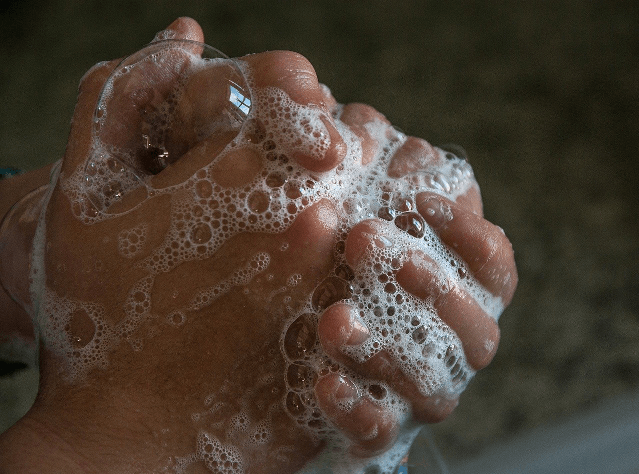
Before you go to bed, you should ensure your fresh, new wound is all nice and clean. Of course, the exception to this advice is if your tattooist tells you to keep the cling film on overnight, so obviously, you won’t need to remove and clean it up.
But if your tattooist tells you to remove the initial wrap, then do so AND CLEAN THE AREA properly. By proper, we mean warm water and non-perfumed soap. That’s it.
2. Take a quick shower so you feel clean
I don’t know about you, but personally, I love taking a shower after spending time at the tattooist’s. When I feel physically clean, I sleep like a baby. You already know getting tattooed is a painful experience, and showers are known to release natural endorphins which helps brighten your mood. So, put two and two together, and you’ll most likely have a good night’s sleep!
3. Don’t lie on the tattoo
Please don’t, don’t, don’t lie on your tattoo. I know it’s relatively easy to do this if your tattoo’s on a spot you don’t normally lie on, like your hands.
For instance, if you got tattooed on your back and you sleep on your back (supine), then you’re going to have to switch sides for now. This means back sleepers should sleep in prone position.
Likewise, if you tend to sleep on your left side and you got a tattoo on the same side, then you’ll need to temporarily sleep on the right, and so on.
4. Re-wrap if you need to
Not everyone advocates tattoo re-wrapping, but if you need to then you should. Keep in mind, however, that not all wraps are created equal.
As mentioned earlier, it’s important to let your tattoo breathe, so only use cling film (it’s fully occlusive) if you absolutely have no other choice. If you do, then you should replace the film every 3-4 hours to avoid an infection from settling in.
The best kind of wrap to use is called ‘second skin tattoo bandage’. This is a relatively new type of bandage that allows the tattoo to breathe. It is also waterproof so you can leave it on whilst you take a shower (not for bathing or swimming though). The best thing is you can leave this bandage for 3-5 days, so you can definitely keep it on whilst sleeping.
Another situation where a second skin bandage would prove useful is if you travel a lot. It’s easy enough to clean up and change dressings when you’re at home, but when you’re travelling, it can be tough. With second skin, you don’t even need to worry about taking it off, so you can peacefully sleep wherever you find yourself at.
5. Put on a thin layer of healing ointment
So, not everyone’s going to be a fan of re-wrapping their tattoos. For tiny tattoos inked in a good spot, that is, you can’t lie on it easily while asleep, then healing ointment like Aquaphor or A+D will do an awesome job of protecting your tattoo.
These 2 healing ointments are petroleum-jelly based, but they’re not 100% pure, unlike Vaseline. This means they’ll allow the skin to breathe while promoting healing underneath. Please stay away from Vaseline as it is highly occlusive and won’t let oxygen in.
Here’s a neat graphic from Aquaphor explaining how it works on wounds:
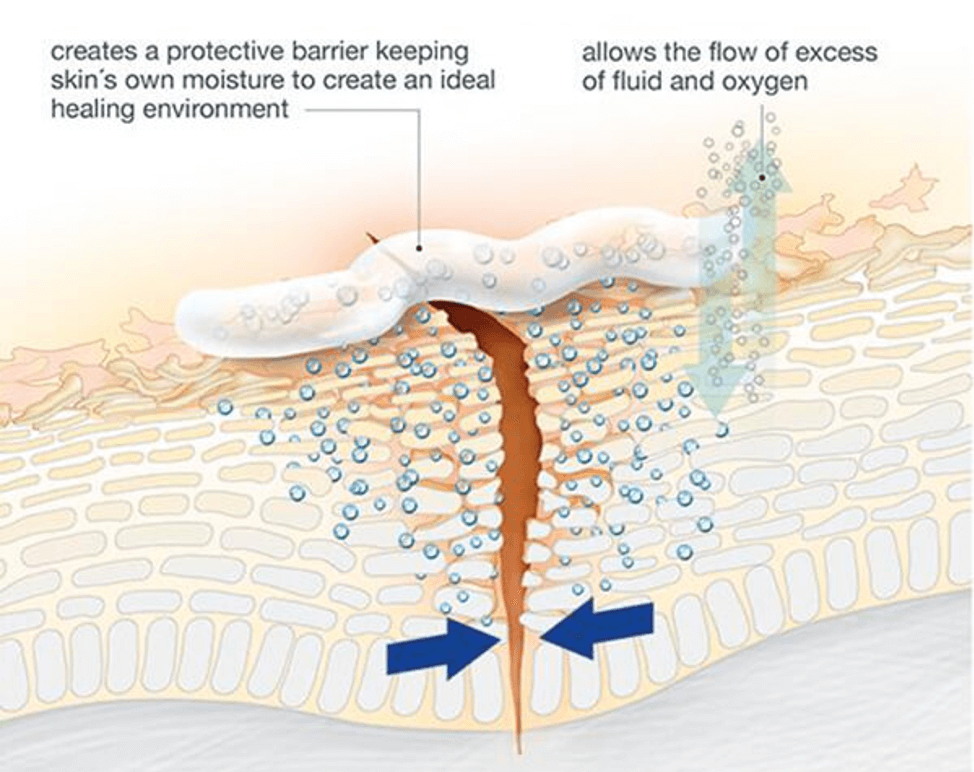
Image source: https://www.aquaphorus.com/how-it-works/
6. Wear old, comfortable clothes
By comfortable, we mean the kind that’s one or two sizes bigger. This gives your tattoo plenty of room to move around in, and of course, let it breathe as well. You wouldn’t want your clothes to accidentally ‘sandpaper’ your new ink, would you? I personally prefer to wear old clothes that have been washed a thousand times – these are usually super soft and super comfortable to sleep in!
7. Use old bedsheets
It’s normal for ink to seep through bedsheets when you’ve got a fresh tattoo, especially if you choose not to re-wrap it at night. On the first night, change the sheets to something you wouldn’t mind getting some ink on. Then change it regularly over the next few weeks to make sure no dirt gets on the sheets and infects your new tattoo.
8. Don’t sleep with your pets
If you sleep with your fur babies, you’re going to have to temporarily get them to sleep somewhere else. The last thing you want is for your newly-changed bedsheets to get dirty and for your pet to start licking your tattoo. You’ll be fast asleep; you wouldn’t exactly know what they’ll be doing, right?
9. Don’t drink alcohol
Alcohol and tattoos don’t mix well. Even before getting tattooed, alcohol is already on the do-not drink list as it can thin your blood during the tattooing process. During the early stages of the healing process, refrain from drinking alcoholic beverages as it can slow down your immune system.
Furthermore, when you’re drunk you tend to get careless and less aware of your surroundings. So, knocking your tattoo into corners and random objects would be highly likely!
10. Elevate the tattooed area
Some parts of the body are more prone to swelling. If you do experience this, then try elevating the area when sleeping. This helps the swelling go down. It also ensures that you don’t apply any unnecessary pressure on the tattoo.
What a good night’s sleep means for you and your tattoo
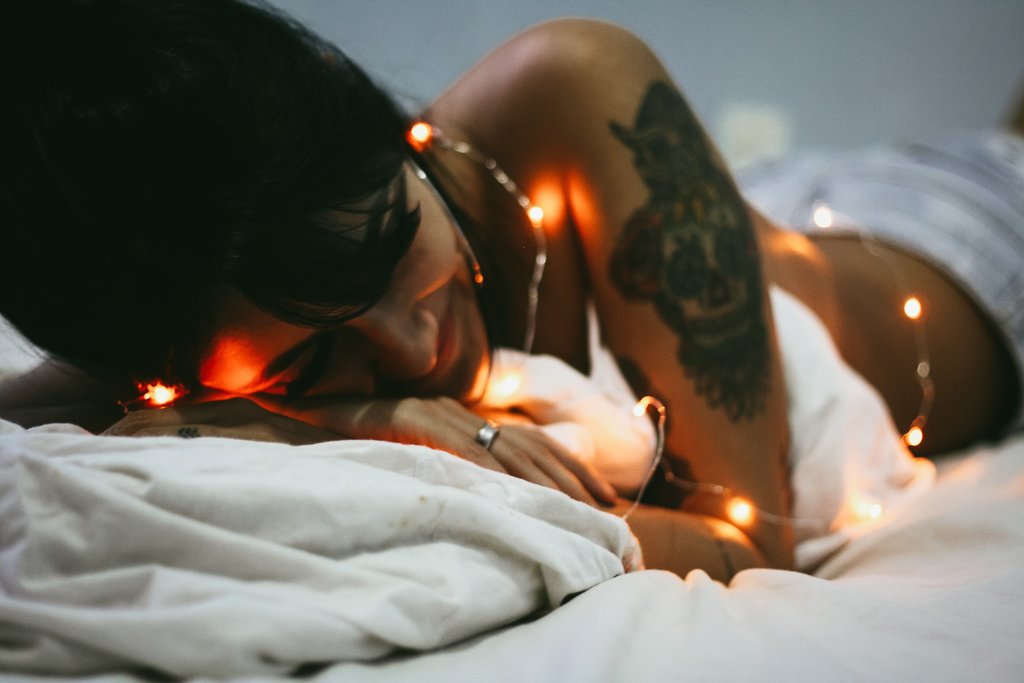
Image source: Matheus Ferrero
Getting enough sleep at night can do wonders for your healing tattoo. Here are more benefits to sleeping well:
- Sleep allows your body to repair itself (so your tattoo can heal properly too)
When you fall asleep, it allows your body to catch up on things it needs to repair. Your brain can finally focus on parts of the body that needs attention – like your healing tattoo, for instance. It will encourage tissue growth and skin repair to close up the puncture holes made by the tattooist’s needles.
Your body needs sleep so it can reinvigorate your immune system in its fight against harmful pathogens. When you lack sleep, your body won’t have enough time to replenish white blood cells. These cells act as the immune system’s frontliner against infection and illness.
- Helps reduce stress
There are plenty of ways you can reduce stress. You can get a full body massage, you can watch Netflix all day long, or you can sleep the day away. After getting tattooed, there’s no better way to relax and unwind than by getting at least 8 hours of sleep.
This is why we recommend getting inked on your days off or whilst you’re on holiday. You don’t need to rush back into work. You can sleep in as long as you want to. And you can take your time recovering from the tattooing process.
- Helps improve your skin health
Yes, it’s true. Your skin health also depends on how well you sleep at night. People who are sleep-deprived tend to produce more cortisol, which can have adverse effects on the body. Cortisol plays an important role in the body, but too much can delay wound – and tattoo – healing. It’s therefore important to get enough sleep if you want better-looking skin.
- Puts you in a better mood
Waking up from deep slumber can do wonders for your mental state. If you went to sleep feeling bone-tired from your tattooing session, when you wake up, it will be a different story.
During the first few days, you’ll most likely feel icky and nasty due to the gunk that would have seeped through your clothes and/or bedsheets. But if you slept well, you’ll take it all in stride because you’ll wake up in a great mood!
Conclusion
Sleeping with a new tattoo – wherever it may be on your body – need not be complicated. Simply follow the tips outlined in this article, and you’ll find your tattoo healing well within the expected timeframe of the healing process.
